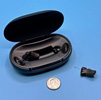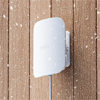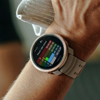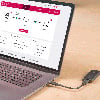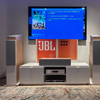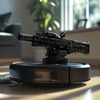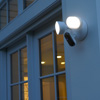Later this year, your iPhone will help 911 operators find you in case of an emergency. Around 80% of 911 calls made come from mobile devices, and emergency services can have trouble pinning down where you are if you don't (or can't) tell them. But in iOS 12, your location will be sent directly (and securely) to first responders when you call 911.
Currently, when you call emergency services from a cell phone, your wireless carrier provides location data, but it's not very accurate. Carriers can usually tell where a caller is within a radius of 522 feet, but that's is a huge area, particularly in crowded urban environments. But your smartphone, with its built-in GPS, knows exactly where you are at all times. So why doesn't 911 use that?
In short, because it's a pretty big technical hurdle. The United States has over 6,500 emergency call centers, which amounts to thousands of different systems a smartphone needs to be able to communicate with to send your location data. It's a problem tech giants have been struggling with for years.
Back in 2015, Apple built a piece of software called HELO to accurately pinpoint your location for emergency services. It goes beyond using GPS: it also tracks what cellular tower you're using and which Wi-Fi access points you're close to, which lets it provide the best possible location information in case of an emergency. But easily getting this information to emergency services has taken more work. Now, Apple has partnered with RapidSOS, a company that has been working to upgrade outdated 911 systems so they're compatible with modern tech. That means an increasing number of 911 call centers will be able to find out where you are when you call. All that's left to do is for Apple to update iOS so sending the data along with an emergency call. The feature is finally being added in iOS 12.
Of course, Apple isn't the only one trying to improve safety. Google has partnered with RapidSOS and has been testing 911 location services for Android. The company managed to provide call centers with more accurate data than wireless carriers were offering, pinpointing the caller within 121 feet. Apple is a little vague on how accurate its location data is, only saying it exceeds the FCC's 50-meter recommendation, which probably puts it on-par with Google.
The fastest way to call for help
In the meanwhile, you can still count on carriers to provide your location data, but if you want something better, the iPhone's Emergency SOS feature can help (to an extent). Emergency SOS will call 911 — or whatever your local emergency services number is — as well as texting your emergency contacts with location information. It's not as good as providing location data directly to 911 operators, but every safety precaution can help in an emergency.
To make an emergency call from your lock iPhone, press the home button with a finger that doesn’t unlock your phone. This brings up the password screen. Select Emergency. Emergency Call will display. Dial 911 or another emergency number.
And make sure you set up your Medical ID on your phone. Creating a Medical ID will provide responders with your emergency contact information, blood type, height, weight, medical conditions, allergies and medications and indicates if you’re an organ donor (you can sign up when setting up your Medical ID if you’re not a donor). All information is optional. Open the Health app, tap Medical ID and Create Medical ID. Switch on “Show When Locked” to make your information available without requiring your password to open the phone. Then fill in the important and pertinent information. Choose emergency contacts from your list of contacts.
Look for iOS 12 to arrive on iPhones later this year (likely September).
[Image credit: 911 calling concept via BigStockPhoto]

